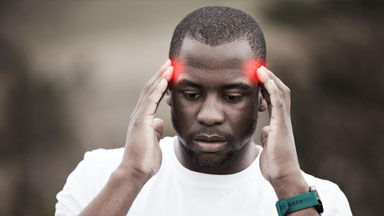Single seizures typically do not cause brain damage or injury directly, but they can result in injuries or complications. The frequency of such injuries is uncertain, as many go unreported. Fortunately, serious injuries are not common, though the risk is significant enough to warrant awareness and precaution.
Types of Injuries and Complications
- The most frequent injuries from seizures include cuts, bruises, and burns. More severe injuries can involve:
- Head trauma: This can range from concussions to more severe injuries involving brain bleeding.
- Fractures: Broken bones can occur during a seizure.
- Choking: This can happen during or after a seizure.
- Drowning: Seizures in water can lead to drowning.
- Complications from other medical conditions: For example, complications from diabetes or pregnancy-related seizures.
- Delayed problems: Issues that develop hours to days after a seizure, such as:
- Pneumonia: If food or liquid is aspirated into the lungs during a seizure, pneumonia can develop, characterized by fever, chest pain, and breathing difficulties.
- Head injury: Symptoms of head trauma may not be immediately apparent and can be mistaken for post-seizure effects.
Immediate Actions and First Aid
- Minor injuries like cuts, bruises, or burns can often be managed with home first aid. Consult your primary care provider if these injuries do not respond to first aid or if you have concerns about persistent bleeding, pain, or swelling.
- Serious injuries such as deep cuts, burns, or significant swelling require professional medical attention. Do not attempt to treat these injuries yourself.
- Head trauma: Seek medical attention if head injury is suspected, especially if accompanied by headaches, nausea, weakness, or other symptoms.
- Breathing issues: Any breathing difficulties require emergency assistance. If someone is choking, call 911 and follow proper procedures to clear their airway if you are trained to do so.
- Seizures in water: Immediately remove the person from water, call 911, and clear their airway if possible.
- Broken bones: All fractures need urgent medical evaluation. Some may need surgery, while others might not.
- Delayed symptoms: Do not ignore new symptoms such as fever, pain, breathing issues, cough, or headaches that appear hours or days after a seizure. Contact your healthcare provider for advice.
Preventing Injuries and Illnesses
- Consult your healthcare team to understand the impact of your specific seizure type.
- Learn what to watch for and how to prevent injuries or secondary illnesses.
- Know when to seek medical care: Understand when an emergency room visit is necessary and when you should contact your primary care or epilepsy specialists.
- Educate others: Teach those around you how to prevent and respond to injuries or illnesses related to seizures.
- Include this information in your Seizure Action Plan.


